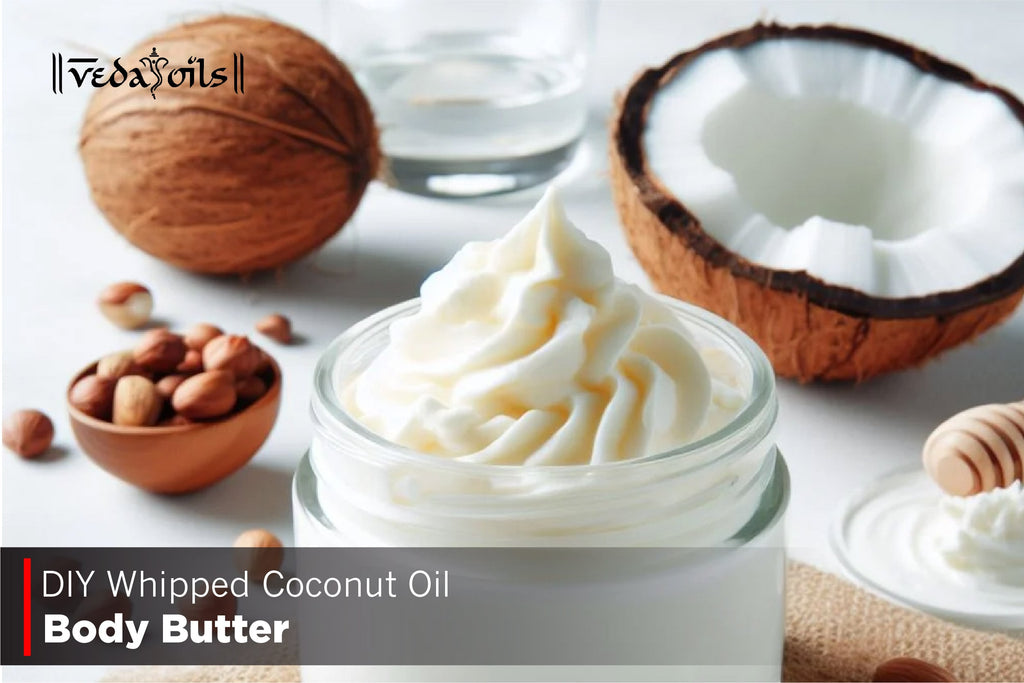Coconut and walnut oil are two natural oils that have been gaining popularity in the beauty industry for their numerous benefits for skin and hair. While both oils are known for their moisturizing properties, they differ in their composition and the specific benefits they provide. Coconut and walnut oil have numerous essential nutrients for skin and hair care.

This blog post will compare and contrast coconut and walnut oil for their benefits on skin and hair. We will explore their different compositions and how they affect the skin and hair differently. By the end of this post, you will better understand which oil to choose for your specific skin and hair concerns.
What Is Coconut Oil?
Virgin coconut oil is obtained by cold-pressing of coconut meat. This oil is the best moisturizer, even better than water. Coconut oil contains fatty acids that improve skin diseases, acne, blemishes, complexion, and overall skin health.
What Is Walnut Oil?
Walnut oil is extracted from walnuts, Juglans regia. The oil contains polyunsaturated fatty acids, monounsaturated fatty acids, and saturated fats. Walnut oil is nutrient and antioxidant-rich, which improves your hair and scalp health. These omega-3 fatty acids also improve skin complexion and overall skin health.
Difference Between Coconut Oil And Walnut Oil
Coconut and walnut oil share many similarities for cosmetic, skin, and hair uses, but they still differ. Check out what is the difference between coconut oil vs walnut oil.
Coconut Oil Vs Walnut Oil For Hair
Our hair goes through a lot the whole day. A good hair massage relaxes your head and moisturizes your hair. Check out coconut oil vs walnut oil for hair.

Coconut Oil For Hair
Coconut oil is a popular choice for hair care because it is rich in fatty acids that can penetrate the hair shaft and provide hydration and nourishment to the hair. It also has anti-microbial properties that can help with scalp health and dandruff. Coconut oil can be especially beneficial for dry, damaged, or curly hair, as it can help to smooth and soften the hair, reduce breakage, and improve the overall appearance and texture of the hair.
Walnut Oil For Hair
On the other hand, walnut oil is rich in omega-3 fatty acids, which can help to nourish and strengthen the hair from within. It also contains vitamin E, which can help to protect the hair from damage and improve its overall health and shine. Walnut oil is a good choice for those with fine or thinning hair, as it can help to improve hair growth and thickness.
Coconut Oil Vs Walnut Oil For Skin
Moisturize your skin with coconut and walnut oil skin-caring goodness. These oils make your skin softer, smoother, and supple. Check out coconut oil vs walnut oil for the skin.

Virgin Coconut Oil For Skin
Virgin coconut oil is a well-known moisturizer rich in fatty acids that moisturize and nourish your skin. This oil also has anti-microbial properties that offer to soothe skin diseases such as eczema, psoriasis, etc. Coconut oil can especially benefit dry, patchy, and sensitive skin. This oil also reduces inflammation, skin texture, and complexion.
Walnut Oil For Skin
On the other hand, Walnut oil is excellent for reducing wrinkles. It has a dense consistency & consistent application that can help fine lines fade over time. It contains vitamin B and antioxidants & is also high in vitamin E, which has been shown to minimize symptoms of aging and profoundly moisturize the skin. It promotes better skin health, helping heal wounds faster and treating some skin conditions, like eczema.
Coconut Oil Vs Walnut Oil - Which Is Better?
Regarding cosmetic use, both coconut and walnut oil can be beneficial, but they have different properties and benefits that make them suitable for different uses. Both oils can be used as a moisturizer by applying a small amount to the skin and gently massaging it.
However, coconut oil can be more comedogenic (pore-clogging) for some people, so it is important to use it in moderation and avoid applying it to areas prone to acne. On the other hand, walnut oil is a lighter oil that is less likely to clog pores and may be a better choice for those with oily or acne-prone skin. Both oils can be used as a hair treatment by applying a small amount to the hair and scalp, leaving it on for a few hours or overnight, and then washing it with shampoo.

However, coconut oil can be more difficult to wash out and may leave a greasy residue if too much is applied, so it is important to use it sparingly. In general, coconut oil is a better choice for various cosmetic uses due to its versatility and benefits for skin and hair. However, walnut oil may be better if you have sensitive or oily skin or want an oil with more specific benefits, such as anti-aging or hair growth. Ultimately, choosing coconut and walnut oil.
Conclusion
Ultimately, choosing coconut and walnut oil for skin and hair care will depend on your skin and scalp type and needs. Experimenting with both oils can help you to determine which one works best for you. VedaOils provides 100% pure virgin coconut and walnut oil at the best wholesale price.










 Sign in
Sign in Register now
Register now My Reward Points
My Reward Points











